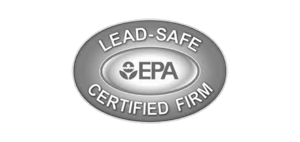While it’s unlikely that a freak hurricane is going to hit inland California any time soon, your home or rental property can still suffer water damage from natural disasters like earthquakes (burst pipes, anyone?) or a flash flood that gives the ground a good soaking and overwhelms the drainage systems. There’s a plethora of information online about what to do after your home’s been damaged. But is there anything you can do to prevent such problems in the first place?
Here are five tips to help you prepare for a water-damaged home (and what to do while it’s happening) – whether by natural disaster or other means.
1. Perform regular check-ups on your house and the landscaping surrounding it.
If your roof is getting old, have someone come inspect it before storm season rolls around. A quick replacement of a few old shingles could save you the headache of repairing leaks and water damage down the line. While you’re up there, trim any overhanging branches so that in the event of a heavy rain or windstorm, you don’t have waterlogged limbs crashing through the roof or damaging other structures.
Also make sure you keep the gutters clean so rain can make its way down the proper channels without clogging. Check the drainage areas around your property and the street as well – if rain can’t get down the drains, it’s just going to pool up and could end up in your house.
And if there is a heavy storm in the forecast, using sandbags and plastic sheeting to block low lying doorways can help divert water away from the home.
2. Know the location of water and utility supply shut-off valves.
If you’ve got a flood happening in the bathroom, you don’t want to waste valuable minutes scrambling around trying to figure out how to shut off the water while it continues to rise. In the same vein, you’re going to want to shut off the electricity promptly to avoid potential sparks and possible electrocution during an emergency.
If flooding is happening and you’ve managed to turn off all the water and electricity, you could still be dealing with potential trouble. Say your second floor bathroom has flooded – it’s a good bet to avoid the kitchen directly below, as the water may have damaged the structural integrity of the house. The last thing anyone wants is to be standing at the refrigerator and have the upstairs bathroom fall through the ceiling. Always avoid being below a water damaged area.
3. Keep all valuable files and documents safe in a lock box, preferably one that is waterproof and/or fireproof.
Things like passports, birth certificates, and social security cards can be kept safe and dry this way. Having a to-go bag handy with clothing, emergency food and water, and prescriptions is also helpful in the case of a natural disaster where you may be left without water or electricity for a couple days.
Additionally, it’s helpful to keep a record of all valuable items in the house so that if you need to make an insurance claim, you’ve got that information handy.
4. Speaking of insurance, figure out what your homeowners’ insurance really covers.
Flood damage from natural disasters is often not covered under a basic plan, nor is water damage that’s been caused by a lack of maintenance on your part. For example, an accidental burst pipe most likely is covered, but say you’ve had a leak for a few weeks that you never got around to fixing, despite all your good intentions. That turns into a bigger leak, which turns into a burst pipe…probably not covered. Know the ins and outs of what your policy covers and what you want to add for peace of mind.
5. Have a local expert on speed dial.
Don’t wait until disaster strikes to start a Google search on which company will get the job done right. Having a relationship with someone, like Distinctive Restoration 247, before you need them will ensure you won’t end up with a shady contractor who is happy to take advantage of you in your time of need.
One other thing to note: before your army of professionals storms the breach to undertake repairs (massive or otherwise), take extensive photos of all the damage for your insurance claim. Having everything documented makes a tough situation just a little bit easier.
While no one wants to face a natural disaster or even just a flooded bathroom, these tips can help you mentally and physically prepare.



















